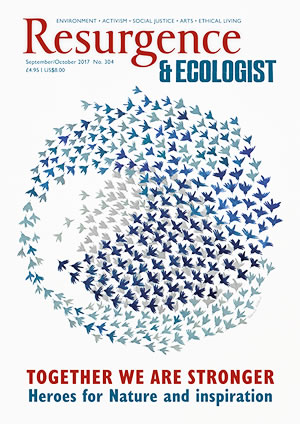Thomas Friedman – the New York Times columnist and author of Hot, Flat and Crowded and a number of other award-winning books – has written a lucid, warm-hearted, intellectually generous and often quite brilliant account of today’s world, the precipitous changes under way, and how we might best put humanity and the planet on a saner course.
Friedman is one of the great explainers: a journalist with a vision of the big picture, avidly curious, tuned into the things that matter, and committed to understanding and explaining the world’s tectonic shifts and fast-moving technological and geopolitical developments to the general reader.
The fundamental premise of Thank You for Being Late is that, for the majority of people at least, “our lives are speeding up – and it is dizzying.” To understand the 21st century, and thereby better to navigate its vicissitudes, we have to address “the planet’s three largest accelerating forces: Moore’s law (technology), the market (globalisation) and Mother Nature (climate change and biodiversity loss)”. These three interconnected challenges “are transforming the workplace, politics, geopolitics, ethics and community” in various at once exciting and deeply unsettling ways, against a backdrop of broader conflict, inequality, tension and insecurity.
The time to take stock and slow down is overdue: the title is a reference to Friedman’s being thankful, one morning, when his guest for breakfast arrived 15 minutes late – allowing him a rare moment of calm to reflect and make sense of various hitherto unconnected trends and ideas. We ought to do this more often, Friedman argues: to pause “to appreciate this amazing historical epoch we’re passing through and reflect on its possibilities and dangers”. Only by doing this can we “anchor ourselves as individuals in the eye of the storm” and create “communities with a topsoil of trust in an age of increasingly diverse and digital populations”.
Amid much of interest – on technology, innovation, the Middle East and US politics – I found the book’s sections on Mother Nature particularly insightful: Friedman speaks with authority and conviction about planetary boundaries, climate change, the biodiversity crisis and our ecological predicament. His concern is heightened as a result of his recent reportage and travels in Africa (for the climate documentary Years of Living Dangerously), in which he conducted moving interviews with Senegalese farmers who have migrated across the desert to Libya for the precarious crossing to Europe, because life for the families they have left behind has become so precarious as a result of the changing climate that there is no alternative but to seek work and remittances elsewhere.
The last section of the book, its most intimate and personal, reads as an extended paean to the civic virtues and sense of community that Friedman found in Minnesota, where he grew up, and to which he returns on an elegiac journey. Here, Burkean ideals, thoughtful environmental policy, a liberal education, inclusiveness to other cultures, and a deep commitment to family and society seems to Friedman a prototype of the kind of response we need to the world we’re in – and he makes a persuasive case.







